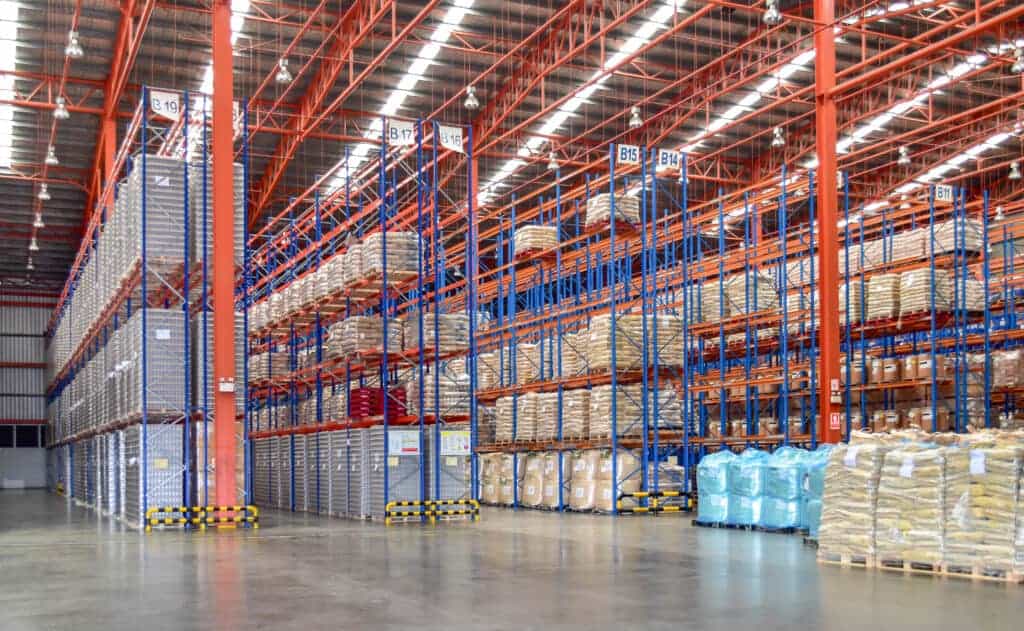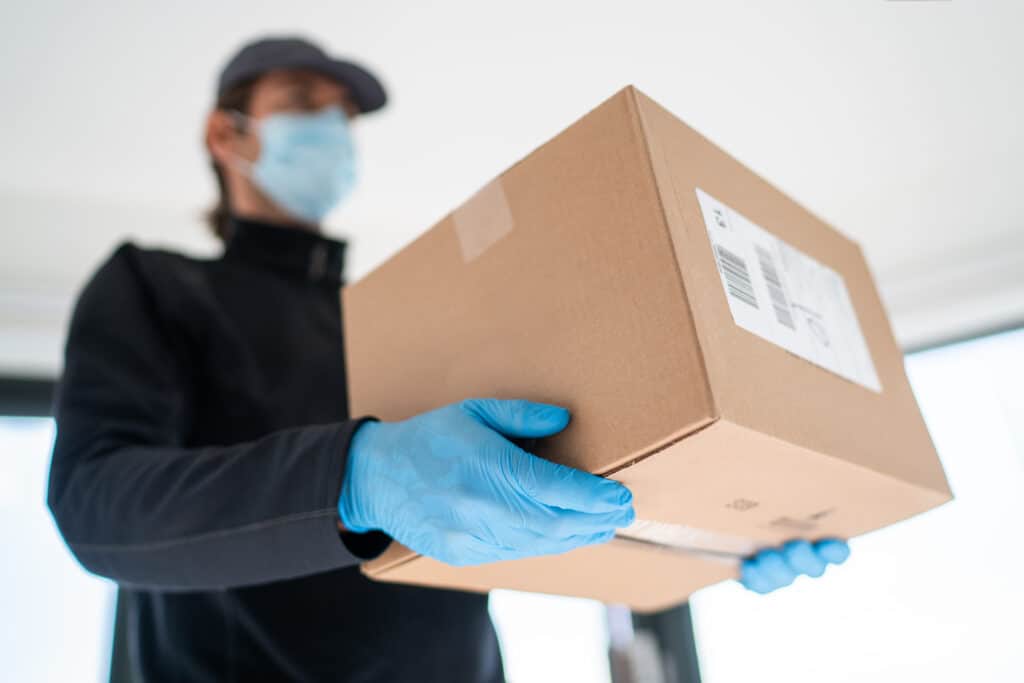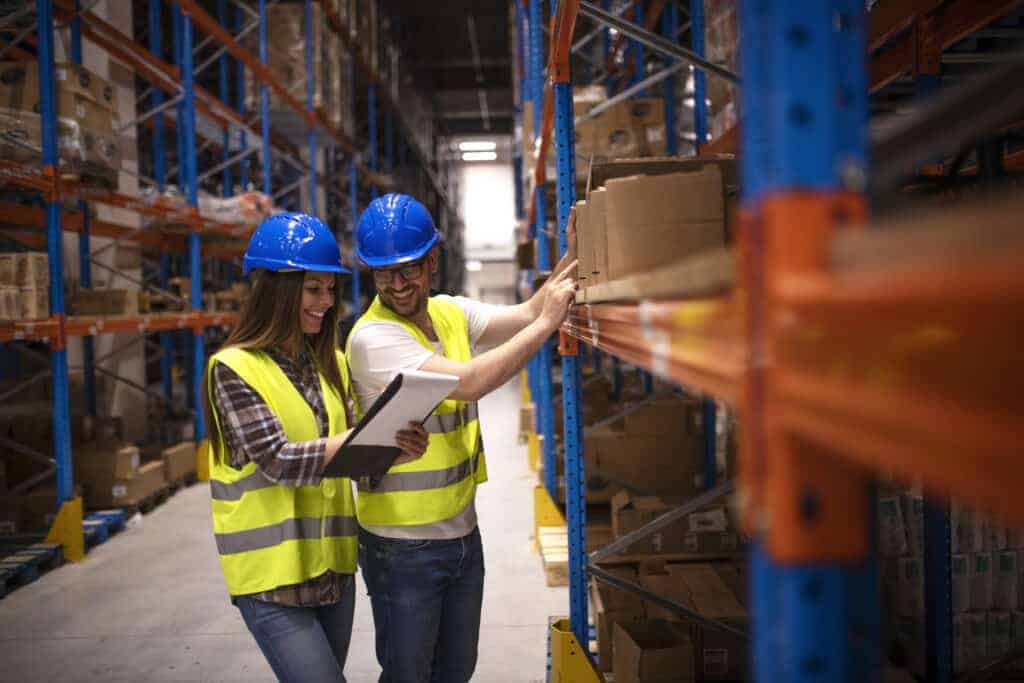Tips on Choosing the Right Fulfillment Center

With Christmas and now 2020 as a whole in the rear view, it’s beginning to look a lot like a brand new year.
While the coronavirus pandemic closed down numerous mom and pop shops it also catapulted entrepreneurial success via virtual marketplaces.
If you started an ecommerce company in the past 12 months it likely means you’ve seen tremendous growth and competition in the online retail industry. It also means your ecommerce business could benefit from help with fulfillment operations.
However in order to properly scale, you’ll need to partner with the right fulfillment center, a seasoned company with multiple locations and years committed.
When considering partnering with a fulfillment center, this isn’t the type of thing you throw a dart at. You want to be sure it’s one that works best for your ecommerce business and allows you to get the most bang for your buck.
But what is a fulfillment center and how do you know if you’re ready to scale? This blog takes a deep dive into what a fulfillment center is, what it does, the way it scales your company and how to go about selecting the right one.
WHAT IS A FULFILLMENT CENTER?
Today there’s a lot more to ecommerce fulfillment than simple order processing and fulfillment centers have evolved to meet industry needs.
A fulfillment center is also known as a Third-Party Logistics provider or 3PL, which creates more efficiency, reduces cost and allows your business to scale quickly.
A solid fulfillment center essentially ensures the success of your business within the modern marketplace by allowing you to focus on customer needs and selling your product, while the 3PL handles everything else.
The right fulfillment center understands the importance of helping your business meet performance objectives.
WHAT ARE THE BENEFITS OF CHOOSING THE RIGHT FULFILLMENT CENTER?
Efficiency: A 3PL streamlines the order fulfillment process by incorporating automation for orders, which includes picking, packing and shipping to customers. It can even include tracking and return processing.
Mitigates risk: A 3PL is responsible for adjusting to unforeseen circumstances so shipping continues as smoothly as possible. Businesses are also protected if goods are damaged or lost.
Reduced logistics cost: 3PLs store your inventory so you don’t have to spend money on warehouses while fulfillment experts are trained to keep logistics costs down. This reduces overhead on certifications, equipment, packaging, rent, and other things you’d otherwise be responsible for on your own. 3PLs also negotiate bulk discounts with major shipping carriers for better domestic and international rates.
Supply chain optimization: 3PLs are logistic experts because they use best practices and the newest technology to help your business grow and thrive. The best 3PLs also optimize the order fulfillment process by providing online store integration, access to data and analytics and inventory tracking.
Scaling: Most businesses fluctuate in sales throughout the year and partnering with a 3PL allows you to more effectively manage the ups and downs.
There are many questions to answer when it comes to ensuring your business is prepared. The below are some questions you should ask yourself as a business owner to ensure you partner with the right fulfillment center.
Do they have a seasoned OMS and WMS software that is industry proven?
These days, many ecommerce businesses use either an order or warehouse management system. But, did you know it’s best to use this type of software together?
The benefits of combining these creates a single, cohesive system streamlining the omnichannel supply chain as well as a shared experience between consumers and businesses.
Flexible processes are essential to creating and managing omnichannel supply chains because customers demand an omnichannel solution. Combined, these systems share information to create a seamless experience for the customer and have the capacity to address issues that could arise during order fulfillment.
The analytics from this software determines customer trends in ordering and adjusts slotting configurations to promote faster lead times. Since the systems’ connection automatically shares data, warehouse managers can better accommodate staff schedules and changes in demand. While overall scalability improves, order accuracy during peaks increases along with customer service satisfaction.
Do they have an order, tracking and inventory that integrates seamlessly with your shopping cart and marketplace channels?
A fulfillment center should have the capability to integrate your entire ecommerce business into your shopping cart, including payment processing, marketing and affiliate management, shipping systems and accounting systems, among others.
It should also offer free 24/7 access into its cloud-based system to manage orders, track shipments, view inventory levels, and create reports.
Can your fulfillment center import from overseas to get your products from the manufacturer to your customer’s doorstep?
Once you’ve handled transportation to the port, a fulfillment center should be able to give you a quote for drayage to get your inventory to the warehouse at a low cost.
Can they route and manage inventories between multiple warehouses?
Where are locations of the warehouses for inventory storage in relation to where your customer base is? Fulfillment staff should be well-trained in the routing requirements of the big box retailers throughout America and overseas.
Find out if the fulfillment center goes the extra mile with transactions to save you money and increase profitability by eliminating vendor chargebacks. Can it meet special requirements asked of retailers and vendors? Does it offer the following:
✅ EDI and vendor compliance
✅ Label requirements
✅ Direct to store
✅ Distribution Center
✅ Drop ship
Do they handle kitting in an automated replenishment process?
Kitting, sometimes called “product bundling”, is the process of packaging two or more related items together to be sold as one single item or “kit” and preparing it for shipment. Assembly is usually done in bulk to lower costs.
Items can be kitted in advance of customers purchasing a single SKU or item online. The manual labor and handling necessary for kitting assembly can make it a time-consuming and costly process. Some online businesses will have their manufacturer kit items together before sending to the fulfillment center.
There are instances where the product is not fully assembled and arrives in pieces that need to be put together at the fulfillment center.
Your ecommerce business may need kitting and assembly services if you’re working with multiple manufacturers that are sending separate pieces of your kit to your fulfillment center.
Some online retailers want to add a gift, product sample or marketing brochure to each shipment. 3PL providers will assemble multiple items into a “kit” so that the item may be sold a single SKU.
Learn more about kitting & assembly.
Additional questions to ask when choosing the right fulfillment center that may be necessary for you to know the answer to depending on what you’re selling include:
- Do they handle reporting and analytics?
- How many orders can they handle in a day? Vendor compliance can be complex and mind boggling. The right fulfillment center can help break down the complexity and help avoid chargebacks, saving you time and money.
- Do they handle Lot Control and expiration dates?
- Are they an FDA certified warehouse for food and supplements?
- Do they have discounted shipping rates? Your customers want their product fast and we want to increase customer satisfaction. Same day shipping on parcel orders before 1pm.
- Do they do serial scanning?
- Do they offer UPC scans to pack for 99.9% accuracy?
- Do they have SLA’s in place? A service level agreement is a commitment between a service provider (fulfillment center) and a client (you). Within this agreement particular aspects of the service such as quality, availability and responsibilities are agreed upon within this contract.
Do they handle Business to Business and Business to Customer?
B2B and B2C are business marketing models used to sell goods or services to either a company or end user. While B2B is a commercial transaction that focuses on the relationship and typically sells a large amount of merchandise, B2C focuses on the product and has a smaller amount to sell.
Overall, the benefits of outsourcing services to a 3PL are tremendous from freeing up time so you can focus more on your core business to improving lead times, providing better and faster service to your customers and lowering your pick fees.
From small e-commerce shops to Fortune 500 companies, a 3PL should be versatile enough to grow with your business and provide a variety of services along the way.
Remember, before you begin the process of selecting a fulfillment center to help you scale, make sure you review the questions we covered so you choose the right one for your business.
Read more:
Is a fulfillment center important for your ecommerce business?

